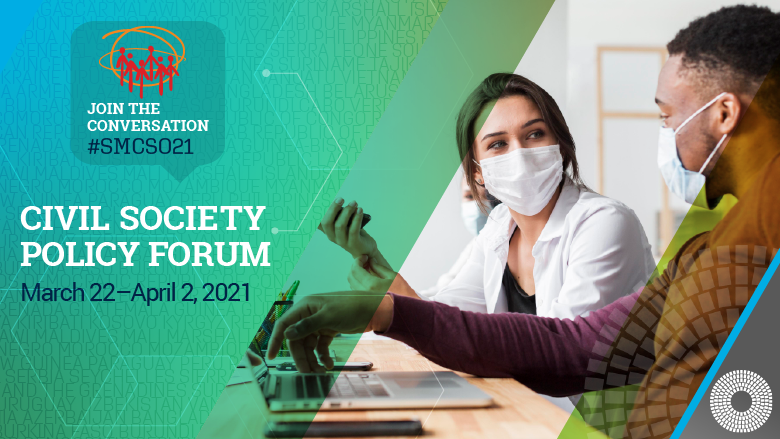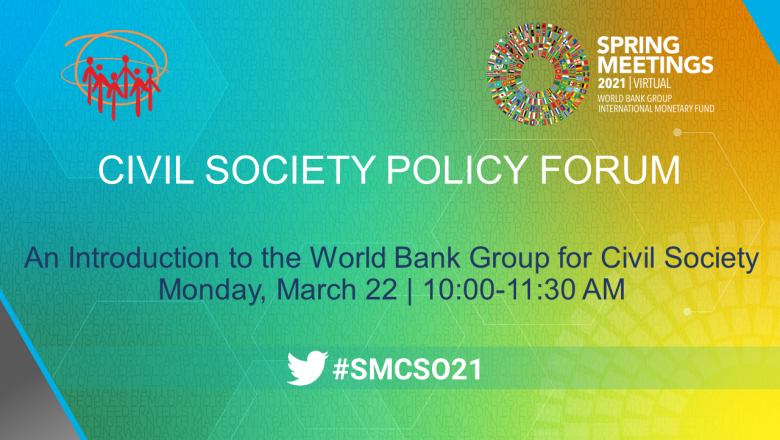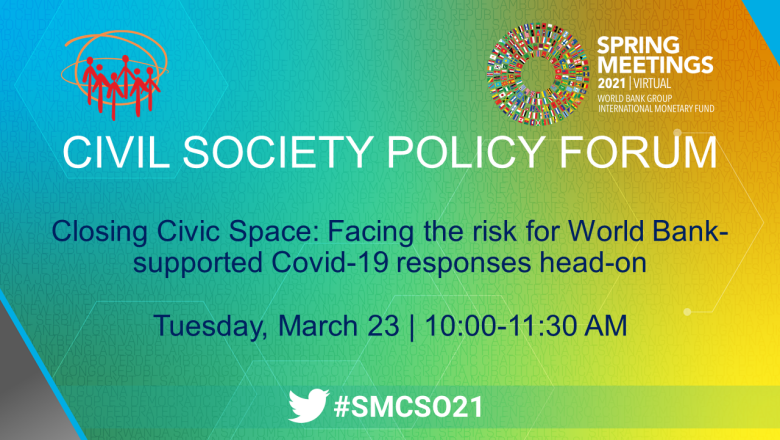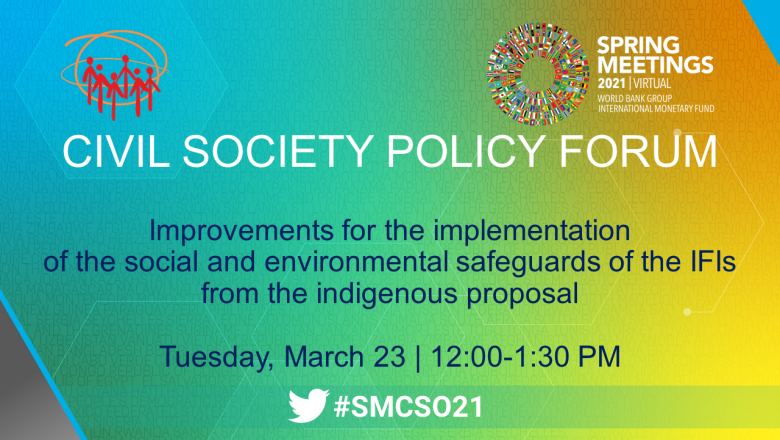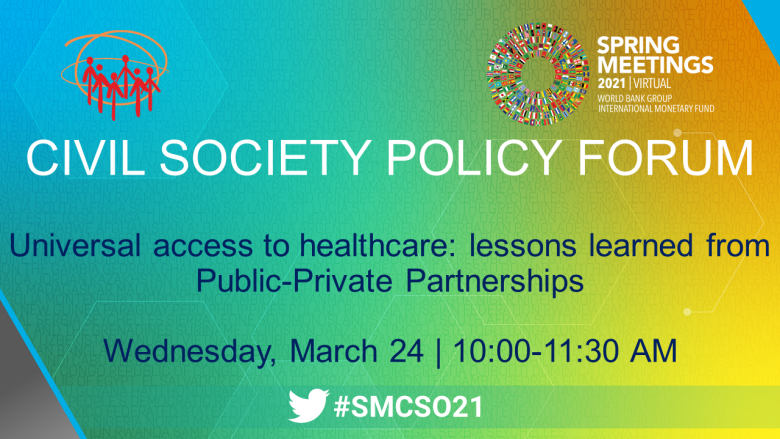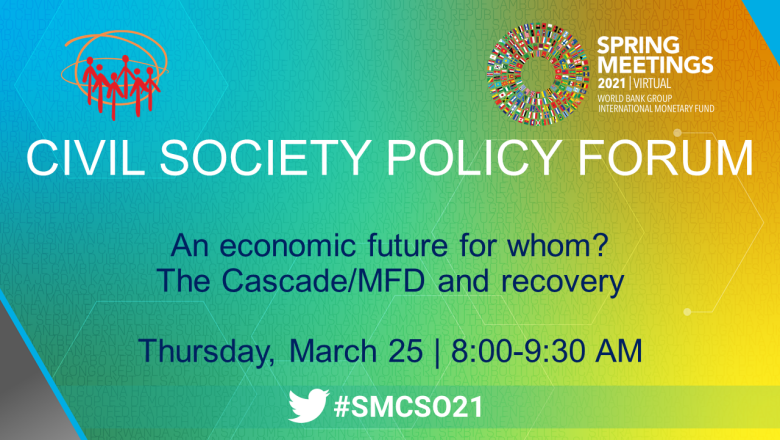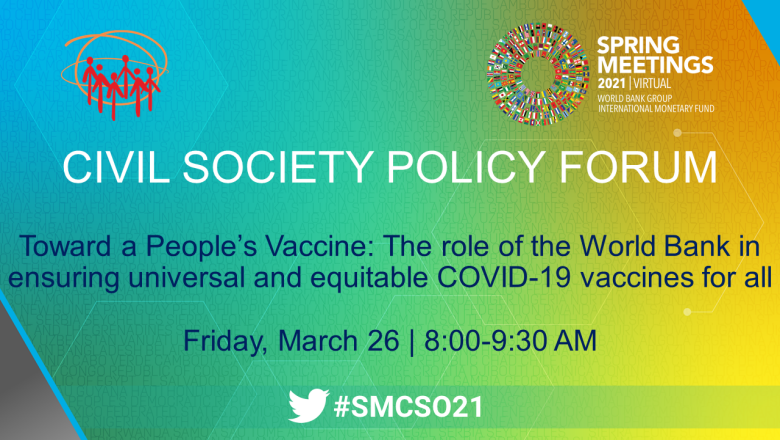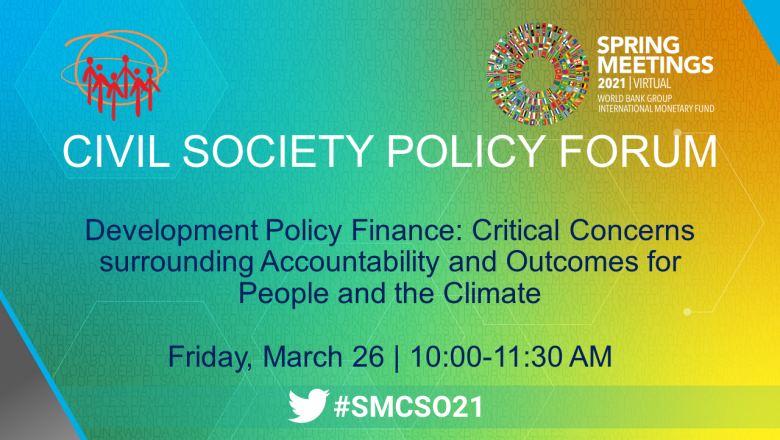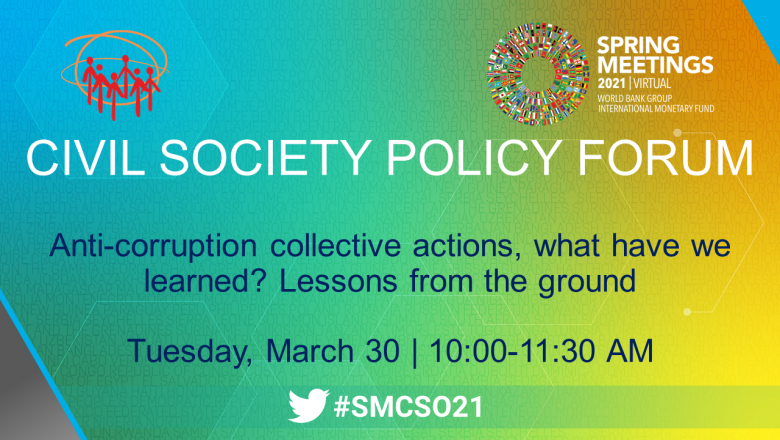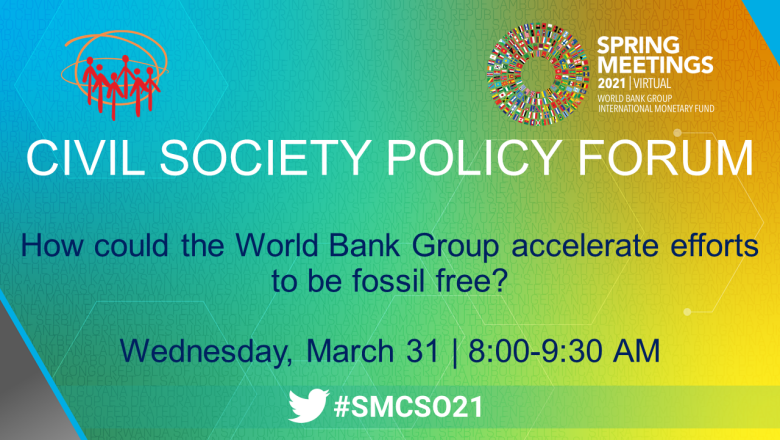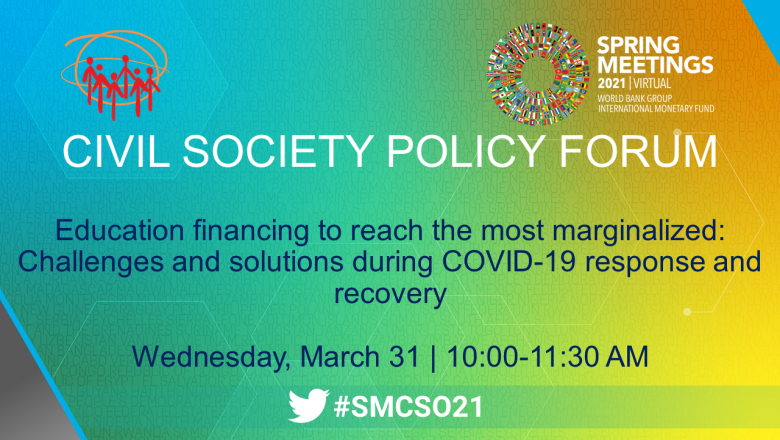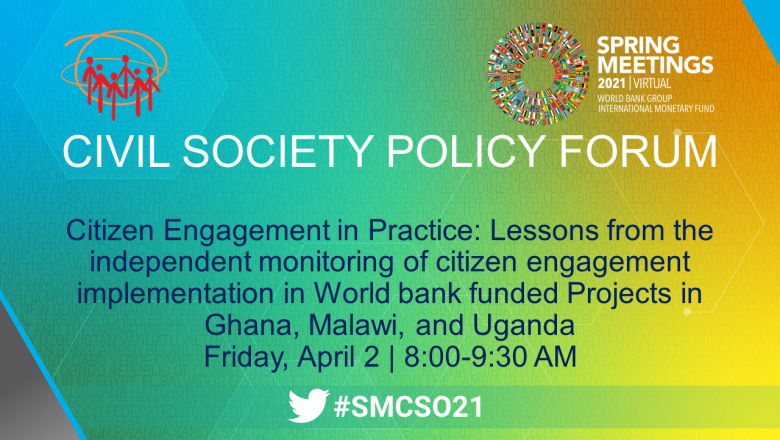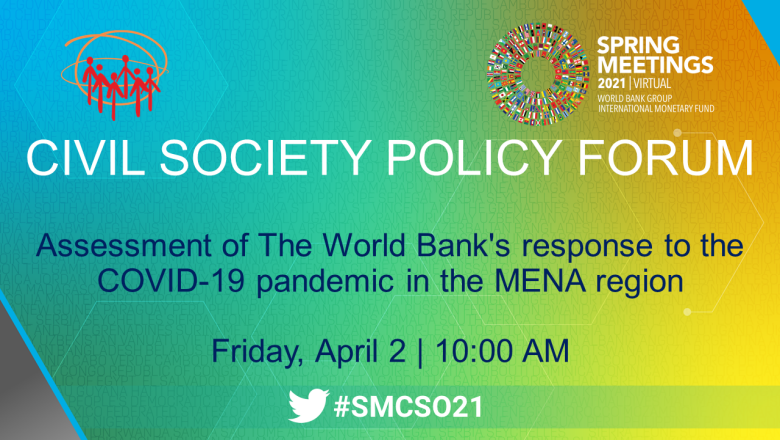FULL PROGRAM
**Subject to change**
Sessions will be livestreamed on this page or on the IMF site.
Please note that in order to participate in the CSPF and interact with panelists, you will have to be registered to the 2020 Annual Meetings.
In addition to the forum, the following meetings have been arranged for CSOs to interact with Management at the IMF and World Bank Group, registration to attend and actively participate in these meetings is required.
Towards a more equal and green recovery: a civil society conversation with IMF's head of policy and strategy: Join Ceyla Pazarbasioglu, Director of the IMF Strategy, Policy and Review Department for a conversation with civil society on how the IMF can help its members get out of this crisis and build fairer, greener, and smarter economies. The conversation will be moderated by Nadia Daar, Head of Oxfam International's Washington DC office, and you will have the opportunity to ask Ceyla your questions in a 45 minute question and answer (Q&A) session. Friday, March 26 9:30 - 10:30am (Washington, D.C. time)
CSO Roundtable with World Bank Group Executive Directors will take place on Thursday, April 8, 2021 from 10:00 to 11:00 am (Washington, D.C. time).
